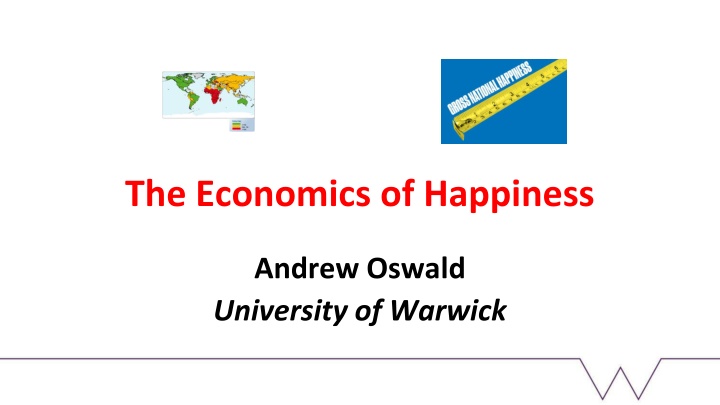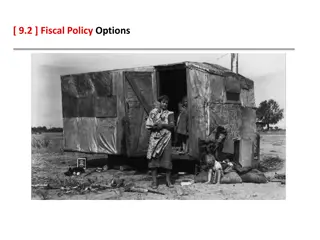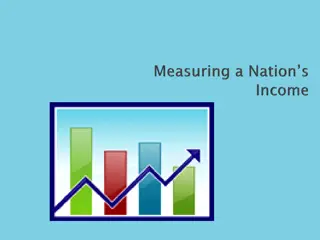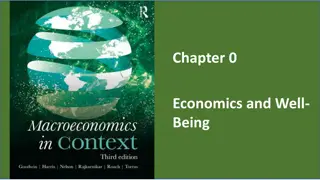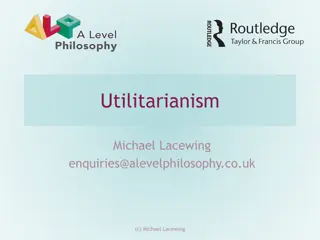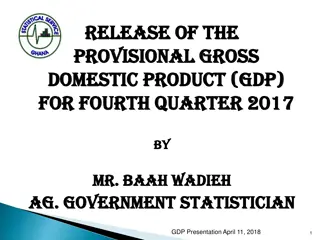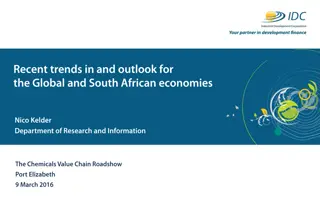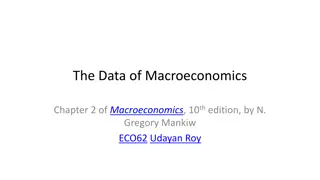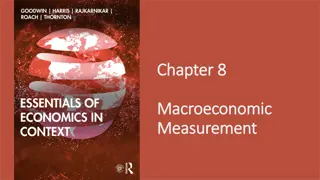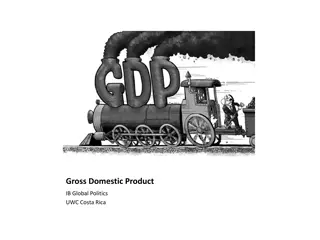The Economics of Happiness: Exploring the Connection Between GDP and Well-being
Delve into the intricate relationship between a nation's economic growth, as measured by GDP, and the well-being of its citizens. The quest for understanding happiness beyond material prosperity takes us on a journey through history and modern society, challenging conventional economic indicators. Through the lens of human emotions and societal progress, we question the validity of traditional metrics in capturing the true essence of a nation's welfare.
Download Presentation

Please find below an Image/Link to download the presentation.
The content on the website is provided AS IS for your information and personal use only. It may not be sold, licensed, or shared on other websites without obtaining consent from the author.If you encounter any issues during the download, it is possible that the publisher has removed the file from their server.
You are allowed to download the files provided on this website for personal or commercial use, subject to the condition that they are used lawfully. All files are the property of their respective owners.
The content on the website is provided AS IS for your information and personal use only. It may not be sold, licensed, or shared on other websites without obtaining consent from the author.
E N D
Presentation Transcript
The Economics of Happiness Andrew Oswald University of Warwick
The background Is modern society going in a sensible direction? Pound_20050329142207 radioactive-happiness-face
To be able to know, we have to decide what should be measured.
Yet in 1934 ...the welfare of a nation [can] scarcely be inferred from a measure of national income...
Prof. Simon Kuznets The originator of the concept of GDP
...the welfare of a nation [can] scarcely be inferred from a measure of national income...
Governments around the world are starting to change what they measure.
The Stiglitz Commission Report, Paris 2009
This is now an official part of government statistical information -- gathered by the Office of National Statistics (ONS).
The UKs ONS survey questions Overall, how satisfied are you with your life nowadays?
The UKs ONS survey questions Overall, how satisfied are you with your life nowadays? How happy did you feel yesterday?
The UKs ONS survey questions Overall, how satisfied are you with your life nowadays? How happy did you feel yesterday? How anxious yesterday?
The UKs ONS survey questions Overall, how satisfied are you with your life nowadays? How happy did you feel yesterday? How anxious yesterday? Do you feel the things you do in your life are worthwhile?
It is natural to wonder whether humans are able to answer such questions in a truly revealing way.
One reason to think so is their remarkable predictive power
I will take you through 4 reported feelings (and 4 observed actions). The scientific value of numerical measures of human feelings. Proceedings of the National Academy of Sciences of the USA. Caspar Kaiser and Andrew J. Oswald October 3, 2022 119 (42) e2210412119 https://doi.org/10.1073/pnas.221041211
You will see graphs showing inverse relationships.
Feelings numbers predict actions next period: UK data with about 100,000 observations
Typical GHQ mental-strain questions Have you recently: Lost much sleep over worry? Felt constantly under strain? Felt you could not overcome your difficulties? ..
One backdrop The intriguing, and worrying, Easterlin Paradox
Economic growth may not make us happier.
Declining US happiness since 1972 [Blanchflower-Oswald results]
Rising Mental Despair Over Time in the USA: % of Americans saying every day of my life is a bad day
How has the modern work on the economics and social science of happiness proceeded? happiness_400
Regression equations scatter
Regression equations Y = f(X) Y is a measure of mental wellbeing X is a vector of influences scatter
Regression equations Mental well-being = f(Age, gender, education level, income, marital status, friendship networks, region, year ) scatter
A flavour of the key findings in this research field:
Large effects from: Unemployment Income Marriage Bereavement Friendship networks Health [No effects from children]
Large effects from: Unemployment - Income + Marriage (formal or informal) + Bereavement - Friendship networks + Health + [No effects from children] zero
